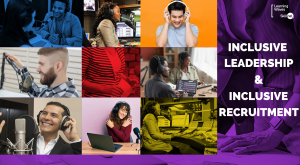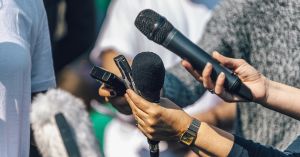Investigative Journalism for Radio.
Course Brief
This course will support you in building the vital skills in research and reporting that are needed to form robust investigations with the power to change lives and society. Throughout this 3 day course you will focus on the practical investigative abilities required to succeed in this area. From sourcing to cultivating to ensuring compliance and finally presenting your story, this course covers it all.
Course Content
Day 1
- How and where to find a story - the means by which an investigative journalist should search for stories and how to know when you've found one worthy of an investigation
- Finding, cultivating and protecting sources - sources and whistle-blowers are the lifeblood of investigative journalism. Finding them, getting the best from them, and protecting them whilst you do it, is a key skill every investigative journalist must have
- Interviewing sources / whistle - blowers anonymously - the keys procedures an investigative journalist must follow to ensure the identity of your source cannot be discovered by the authorities or public alike
- Advanced interview techniques - as an investigative journalist you can, on any given day, find yourself interviewing a career criminal, a victim of abuse or a parent who's lost their child to a random, senseless attack. One interview style does not fit all. We'll outline how to adapt the interview to the interviewee - and how to maximise the content
Day 2
- Covert investigative methods - in-person or online, an investigative journalist should have the ability to work and film / record undercover. This serves as an introduction to the methods used by the best in this field of journalism
- How to build a legend / alias - the key elements of building a false identity with a view to uncovering crime or corruption
- How to film and / or record undercover - the skills required to gather audio or visual proof of crime or corruption
- Interviewing whilst undercover / assuming an alias on-line or in person - here, you need to interview the subject without them knowing they are being interviewed. A subtle, nuanced skill that the very best investigative journalists must have in their arsenal
- Key compliance and legal knowhow (plus how to apply that knowledge when in the field) - there are strict legal parameters an investigative journalist must work to in terms of how footage is gathered, the language used by that journalist when gathering that information and, crucially, how to avoid entrapment of a person of interest
Day 3
- Presenting / reporting for investigative journalism - keys tips for delivering pieces to mic in this genre of reporting
- How to build an investigative news package - from short-form to long-form these are the essential elements of an investigative news-package, including planning the structure, finding the right experts / interviewees to bring your story to life, scripting, voiceover and how to effectively integrate right of replies into your programme
- Doorstep/confrontation strategies - most great investigative stories end with a doorstep or confrontation. Essentially, these are hostile interviews - and we'll guide you through the necessary, and most effective, methods used in each possible scenario e.g. if they run, stand and fight etc.
Trainer - Paul Connolly, LAPA Communications
LAPA Communications is owned and run by Paul Connolly, specialises in media training for the radio and television industries. Mr Connolly is an investigative broadcast journalist, television and
radio presenter, documentary maker and training professional
with more than 15 years’ experience under his belt.
Course Dates and Duration
Day 1 - 28th September 2021, 9.30am to 12noon
Day 2 - 29th September 2021, 9.30am to 12noon
Day 3 - 7th October 2021, 9.30am to 12noon







